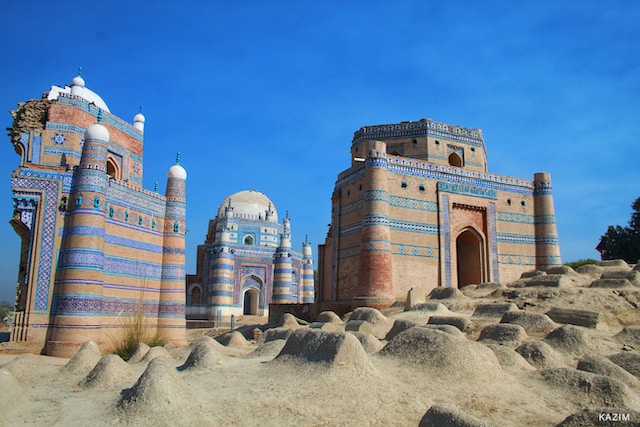India’s Relations With Pakistan

India and Pakistan share strong cultural, linguistic, geographical and economic ties; however, their relations are further complicated by the violent partition of British India in 1947 and an ongoing dispute over Jammu & Kashmir.
In 2016, a suicide bombing in Indian-administered Kashmir killed 40 security personnel, leading to widespread unrest across the region and raising tensions between Pakistan and India. India responded by withdrawing most favoured nation status and imposing a 200% tariff on imports from Pakistan.
History
Since 1947 and the Partition of India, four wars have broken out between Pakistan and its western neighbor India since 1947. Of those, four were bloodiest; 1971’s war led to Bangladesh being established (formerly East Pakistan). But since 2014 there have been signs of improvement; Indian Prime Minister Narendra Modi invited Pakistani counterpart Nawaz Sharif to his inaugural event and visited him again later.
As soon as Britain left, they ceded much of its subcontinent territory while simultaneously recognizing 562 “princely” states which could choose whether or not to join Pakistan or India, setting in motion violent competition between both new nations for these territories, most notably Kashmir. India claims Maharaja Hari Singh signed an instrument of accession that made him part of India and not Pakistan, while Pakistan insists the matter be decided via referendum.
Politics
Although they had their differences, the Indian government under Prime Minister Morarji Desai attempted to reduce its dependence on Russia while forging economic and military ties with Pakistan – prompting the United States to shift its emphasis away from Pakistan toward India in South Asia.
After the 1972 war, India and Pakistan agreed upon the Shimla Agreement that called for peaceful resolution of their differences and, by 1976, diplomatic and trade ties had been resumed between both nations.
Cross-border terrorism continues to undermine efforts at creating a comprehensive peace process. Following an attack in Pulwama district of Indian-administered Kashmir in February 2019, India accused Jaish-e-Mohammed from Pakistan of being behind it and conducted airstrikes against its base in Balakot as reprisal.
Since then, both sides have implemented several mutual confidence-building measures to ease tensions and restore harmony – including high-level meetings, cricket matches and bus services along their shared border. But in September armed militants crossed into Indian-administered Kashmir from Afghanistan and killed eighteen soldiers at a remote army base.
Economy
India is a major global power with a population that numbers billions and rapid economic development; yet its economy can be exposed to geopolitical tensions and weather events, leaving its future uncertain.
Cross-border terrorism, ceasefire violations, territorial disputes over Jammu and Kashmir and an array of tense incidents such as Pulwama terror attack, Balakot airstrike, scrapping of Article 370/35A etc have often created tensions between both countries and have furthered distance between them. 2019 witnessed yet more tension due to events like Pulwama terror attack, Balakot airstrike and scrapping Article 370/35A which caused further strain between them both nations.
Though bilateral trade may present its share of challenges, both countries stand to benefit from its promotion. By reducing tariffs and bureaucratic barriers, providing secure travel for tourists, setting up student exchange programs and inviting professionals, intellectuals and artists for events to foster cultural ties between their nations, as well as using the Indus Waters Treaty for hydro diplomacy purposes and building a water grid between their territories, bilateral trade can help strengthen relationships while stabilizing South Asia.
Culture
India and Pakistan share a long cultural heritage, yet their governments have struggled to maintain good relations between themselves. Terrorism, territorial disputes and military tensions have plagued diplomatic ties.
As soon as India and Pakistan achieved independence from British rule in 1947, they engaged in three major wars and numerous skirmishes. At issue was Jammu and Kashmir – which India claimed by virtue of an instrument signed by Maharaja Hari Singh – while Pakistan maintained that this territory belonged to them instead.
Differing nation-states remain at odds, as demonstrated by 2019’s suicide bombing by Pakistan-based Jaish-e-Mohammad terrorist group that resulted in 40 Indian soldiers dying at Pulwama – India’s deadliest attack against its military in decades.
India conducted what it termed “surgical strikes” against what Islamabad denied was a terrorist base in Pakistan-controlled territory in Kashmir, while also placing restrictions on goods entering from Pakistan.

Ryan is a journalist specializing in India’s economic landscape, covering topics like business trends, innovation, and the growth of small and medium enterprises.